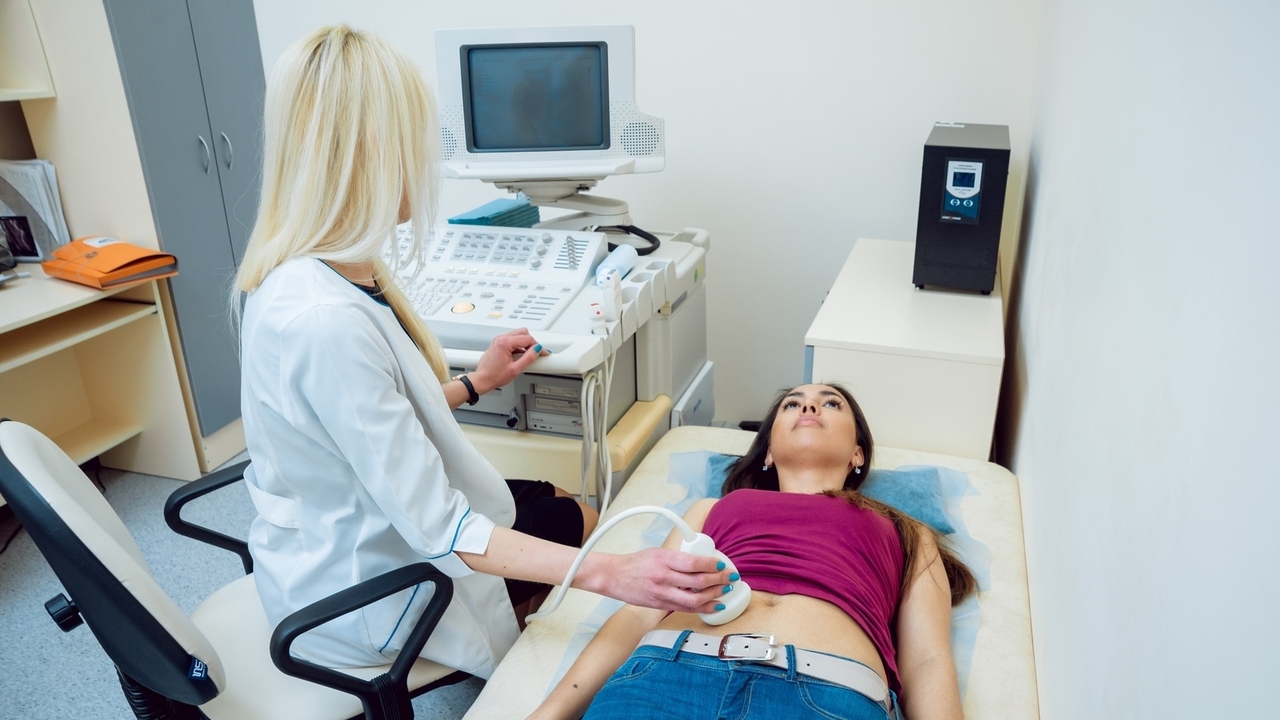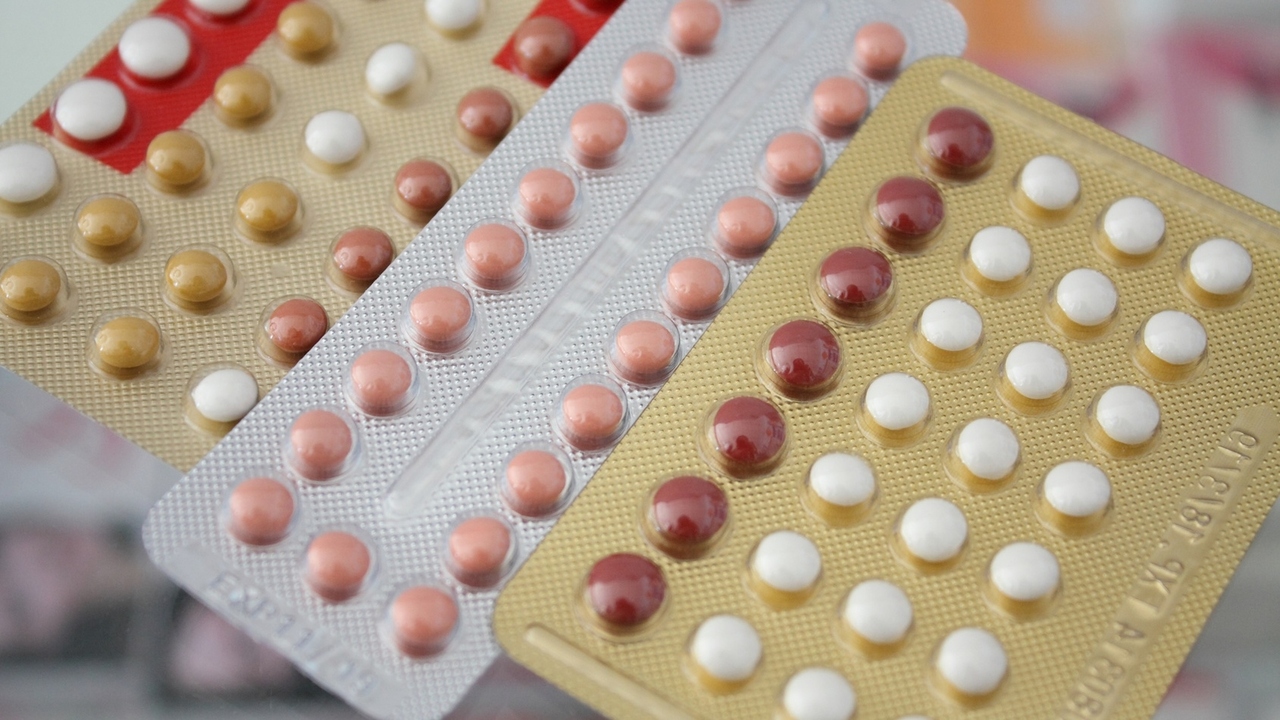Hi, I am 19 years old and for the last few months I have been feeling like im bloated, I have been haing lower back pain, and I had spotting between my periods. I went to the doctors right away and she sent me for a regular ultrasound, a transvaginal ultrasound, and an abdominal x-ray. The result that came back as follows: the ultrasound found no masses on either ovary, but found some follicles on my ovary, what does this mean? The x-ray showed that I was "backed up", which seemed wierd because I usually have 1 to 2 bm a day. A few weeks later I feel a little bit better, but my stomach pain has went up to my upper abdomen, not to mention I gained 8 pounds fast!! The results came back normal but could the doctor missed something? Cancer does not run in my family and I have had no other health problem, well expect for stress, because this is stressing my out alot! Thanks for the help!
All user-generated information on this site is the opinion of its author only and is not a substitute for medical advice or treatment for any medical conditions. Members and guests are responsible for their own posts and the potential consequences of those posts detailed in our Terms of Service.





Add a Comment5 Comments
You should really do surgery because so you can rest in peace if it is only a begnin tumor. They will test the tumor no matter what, and if you do have something serious they will catch it which will help you survive!! thats ONLY if you have some kind of cancer, it could just be a non-cancerous tumor! Good luck!
September 23, 2009 - 10:29amThis Comment
My doctor found large fibroids (size of an orange). She wants to check me again in 3 months. She is seems certain I may need surgery and recommended a removing my uterous. I want to avoid surgery. What can I do?
September 23, 2009 - 8:05amThis Comment
Anon,
There are other alternatives for removing fibroids that don't involve hysterectomy. Here is what our EmpowHer enclopedia says about fibroids and their treatment:
"Most women with fibroids have no symptoms and do not need treatment. The doctor may recommend "watchful waiting," monitoring the size and growth of the fibroids at regular intervals using ultrasound.
Treatments include:
Pain Medication
Over-the-counter pain pills ease mild symptoms. Prescription pain relievers may be needed. Nonsteroidal anti-inflammatory drugs reduce inflammation and help with cramping.
Hormonal Therapy
Hormone medications, which decrease estrogen levels, are an option if you are not trying to become pregnant. Synthetic hormones create an artificial menopause. The drugs shrink fibroids and diminish the pain by decreasing the supply of estrogen to the uterus. However, fibroids can return once you stop taking the medication. These drugs are often used to reduce fibroid size prior to surgery. Because hormone medications are harmful to a developing fetus, you must use a barrier method of birth control while taking them.
Surgery
Surgery is considered if:
* The uterus becomes extremely large.
* The fibroids are interfering with fertility.
* Symptoms are severe.
Surgical procedures include:
Myomectomy
Myomectomy is the removal of the fibroids only and leaving the uterus intact. This can be done by:
* Open surgery that involves a single large abdominal incision
* Laparoscopy —using a lighted fiberoptic tube and requiring only a few small incisions
* Hysteroscopy—which involves the insertion of a hysteroscope through the cervix into the uterine cavity
Because it preserves the uterus, myomectomy is commonly performed on younger women who may want to have children. However, conceiving may remain difficult. The surgery is less successful if there are many fibroids, because some may grow back.
Uterine Fibroid Ablation
An alternative to surgical removal, uterine fibroid ablation (also called myolysis) uses heat to disrupt the blood supply to the fibroid, causing it to shrink. This is a relatively new procedure and not available in all medical facilities.
Total Hysterectomy
Total hysterectomy is the removal of the entire uterus. This may be done through a vaginal or abdominal incision. Hysterectomy is the definitive treatment for fibroids, but it eliminates the possibility of having children.
Nonsurgical Options
Uterine Fibroid Embolization
Fibroids need an adequate supply of blood to grow. Without blood, the tumors shrink. Doctors can perform a uterine fibroid embolization (also called uterine artery embolization) to stop the blood flow. A specially trained doctor makes small cuts in the groin and threads a catheter into the arteries that supply the uterus with blood. Tiny particles of plastic or gelatin are passed through the catheter. The particles make their way to the fibroids and block blood from reaching the tumors.
Focused ultrasound therapy
Focused ultrasound therapy is a new, noninvasive treatment done under magnetic resonance imaging (MRI) guidance, which recently completed successful clinical trials. This procedure is available in a limited number of academic medical centers and may not be appropriate for patients who are significantly overweight, have very large fibroids, or extensive scars from prior abdominal surgeries."
Here's that page; it has much more information, and links:
https://www.empowher.com/media/reference/uterine-fibroids#definition
And you may find the stories from these women particularly helpful:
https://www.empowher.com/community/share/fibroid-surgery
https://www.empowher.com/community/share/surgery-day-coming-soon
https://www.empowher.com/community/share/after-fibroid-my-post-op-story
Is there a specific reason your doctor believes a hysterectomy is the best option for you? Were you made aware of other options?
September 24, 2009 - 8:46amThis Comment
Hi, Clinn, and welcome to EmpowHer! Thank you for your question.
It sounds like your doctor was also looking for the possibility of ovarian cysts, which can be quite painful but are usually benign and can go away by themselves. Here is our EmpowHer encyclopedia page on ovarian cysts:
https://www.empowher.com/media/reference/ovarian-cyst#definition
That page also has a diagram of your ovary, as well as lists of symptoms and treatment.
Follicles are simply tiny, fluid-filled sacs in which an egg matures before ovulation. When the egg is ready to be released into the fallopian tube, the follicle bursts.
What did your doctor recommend after you got your normal test results back? Is she aware that your pain seems now to have moved to the upper abdomen?
Besides the bloating, the spotting and the pain, have you noticed any difference in your monthly period? Any heavier bleeding, or increased cramping? They can be a symptom of endometriosis, which is a condition in which uterine (endometrial) tissue grows outside the uterus. It can be quite painful, and is usually diagnosed through an outpatient surgical procedure called a laparoscopy. Here's our reference page on endometriosis:
https://www.empowher.com/media/reference/endometriosis#definition
Did your doctor mention the possiblility of cysts or endometriosis?
I know that you said you are stressed and worried. Since you have waited a few weeks and still have symptoms, it may be time to schedule a followup appointment with your doctor.
September 22, 2009 - 9:15amThis Comment
The results of both of my ultrasounds came out that there were no cysts or no masses, which Is a relief, I really thought I had ovarian cancer. My doctor highly doubted that I had ovarianc cancer, because she said the symptoms I am having are similar to those of ovarian cancer in its late stages, so the ultrasounds and the x-rays would have spotted it and also my age, she says its very rare that girls my age get ovarian cancer, but she gave me the tests just to make sure, and when they came back negative she believes it is not that.I told my doctor about pain moving up to my upper abdomen and she felt along my path of my colon and she said it felt like I was backed up, which I was surprised becacuse I have 1 to 2 bms a day, after that she thought that I had acid left in my stomach so she prescribed my prevacid, which has helped alot, now the only time I feel bloated is after Im done eating! Also she says that all of my symptoms seem to be because I am at the age of my last hormonal change. Can a hormonal change cause all of this?
September 22, 2009 - 6:02pmThis Comment